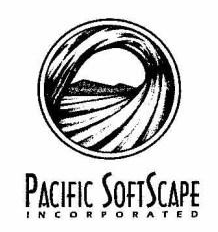Difference between revisions of "Pacific SoftScape"
From Sega Retro
m |
m |
||
| Line 10: | Line 10: | ||
==History== | ==History== | ||
| − | ''{{PAGENAME}}'' was founded on May 5th, 1993 by former [[Western Technologies]] programmers Raymond Frericks Jr. (acting as President), Jeff Fort, and Bruce Straley (a development team best known for ''[[X-Men]]''). The studio would go on to work with [[Sega of America]] in developing software for the North American release of [[Sega Channel]], with company programmer Dave Castelnuovo creating the [[BIOS]] used in the system's physical adapters.<ref>K Horowitz (2016). ''Playing at the Next Level: A History of American Sega Games''</ref> | + | ''{{PAGENAME}}'' was founded on May 5th, 1993 by former [[Western Technologies]] programmers [[Raymond Frericks Jr.]] (acting as President), [[Jeff Fort]], and [[Bruce Straley]] (a development team best known for ''[[X-Men]]''). The studio would go on to work with [[Sega of America]] in developing software for the North American release of [[Sega Channel]], with company programmer Dave Castelnuovo creating the [[BIOS]] used in the system's physical adapters.<ref>K Horowitz (2016). ''Playing at the Next Level: A History of American Sega Games''</ref> |
During the troubled 1995 development of [[Zono]]'s ''[[Mr. Bones]]'', the game's producer [[Ed Annunziata]] began looking for another company to finish development. Ed Zobrist of Pacific SoftScape reached out to Annunziata about filling that role, which resulted in the game being largely finished by Pacific SoftScape staff. This also resulted in a number of SoftScape staff migrating to Zono.<ref>K Horowitz (2016). ''Playing at the Next Level: A History of American Sega Games''</ref> This would seemingly be the last project for the studio, as they would close their doors the following May.{{fileref|Pacific SoftScape Inc. Election to Dissolve 1996-05-03 (California Secretary of State).pdf}}{{fileref|Pacific SoftScape Inc. Dissolution 1996-05-03 (California Secretary of State).pdf}} | During the troubled 1995 development of [[Zono]]'s ''[[Mr. Bones]]'', the game's producer [[Ed Annunziata]] began looking for another company to finish development. Ed Zobrist of Pacific SoftScape reached out to Annunziata about filling that role, which resulted in the game being largely finished by Pacific SoftScape staff. This also resulted in a number of SoftScape staff migrating to Zono.<ref>K Horowitz (2016). ''Playing at the Next Level: A History of American Sega Games''</ref> This would seemingly be the last project for the studio, as they would close their doors the following May.{{fileref|Pacific SoftScape Inc. Election to Dissolve 1996-05-03 (California Secretary of State).pdf}}{{fileref|Pacific SoftScape Inc. Dissolution 1996-05-03 (California Secretary of State).pdf}} | ||
Latest revision as of 00:01, 8 March 2024

| ||
| Pacific SoftScape | ||
|---|---|---|
| Founded: 1993-05-05[1] | ||
| Defunct: 1996-05-03[2][3] | ||
Headquarters:
|
This short article is in need of work. You can help Sega Retro by adding to it.
Pacific SoftScape, Inc. was an American software developer which assisted Sega of America with development of the Sega Channel. Headquartered in Mission Viejo, California[2], the studio only ever produced a single game of their own, the 1994 cinematic platformer Generations Lost.
History
Pacific SoftScape was founded on May 5th, 1993 by former Western Technologies programmers Raymond Frericks Jr. (acting as President), Jeff Fort, and Bruce Straley (a development team best known for X-Men). The studio would go on to work with Sega of America in developing software for the North American release of Sega Channel, with company programmer Dave Castelnuovo creating the BIOS used in the system's physical adapters.[4]
During the troubled 1995 development of Zono's Mr. Bones, the game's producer Ed Annunziata began looking for another company to finish development. Ed Zobrist of Pacific SoftScape reached out to Annunziata about filling that role, which resulted in the game being largely finished by Pacific SoftScape staff. This also resulted in a number of SoftScape staff migrating to Zono.[5] This would seemingly be the last project for the studio, as they would close their doors the following May.[2][3]
Softography
References
- ↑ File:Pacific SoftScape Inc. Registration 1993-05-05 (California Secretary of State).pdf
- ↑ 2.0 2.1 2.2 2.3 File:Pacific SoftScape Inc. Election to Dissolve 1996-05-03 (California Secretary of State).pdf
- ↑ 3.0 3.1 File:Pacific SoftScape Inc. Dissolution 1996-05-03 (California Secretary of State).pdf
- ↑ K Horowitz (2016). Playing at the Next Level: A History of American Sega Games
- ↑ K Horowitz (2016). Playing at the Next Level: A History of American Sega Games